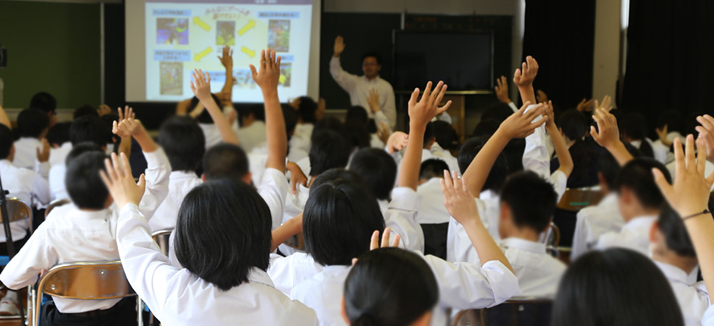Educational Support Activities | Efforts by Game Industry for Better Understanding
- Our Goal/
Upcoming Challenges - Efforts by Game Industry
for Better Understanding - Program Contents
- List of Schools
Efforts by Game Industry for Better Understanding
1. What is the “Ratings System”?
The Computer Entertainment Rating Organization (CERO), a Specified Nonprofit Corporation, was created to provide age-appropriate ratings for video games. Capcom complies with the CERO rating system and rules.
The rating system is an initiative for the healthy development of young people that calls for voluntary restrictions on home video game content and sales methods to limit access by young people to sexual or violent content. In addition, recent game platforms include a parental control function that enables parents to limit the online purchase and use of certain games according to their ratings.
Capcom is a member of the Computer Entertainment Rating Organization (CERO), an NPO approved in Tokyo. This organization has established an age ratings system as part of self-regulations and ethical rules for the industry, in aim to promote games that are ethically sound. The rating is attached to each game software package to inform the buyer of the appropriate ages necessary to play those games.
Including portable video game consoles, all game software played at households and sold in Japan is rated using proper age categories set using various standards, which ensure that users are the proper age to play the games. For example, rating B indicates children aged 12 or older are appropriate to play the game. Meanwhile, rating Z indicates people aged 18 or older only are appropriate to play the game.
The game industry is promoting the understanding and diffusion of this rating system.
2. Addressing the WHO’s recognition of gaming disorder
In May 2019, the World Health Organization (WHO) included gaming disorder as a new mental health condition characterized by excessive use of games to the point where it has a negative impact on health and social life.
Cooperating with industry organizations such as the Computer Entertainment Supplier’s Association, we are taking the appropriate steps to raise awareness of the issue in response to social demand.
As an independent effort, we will continue to educate elementary and junior high school students on how to interact with games in a healthy manner through our educational support program.






